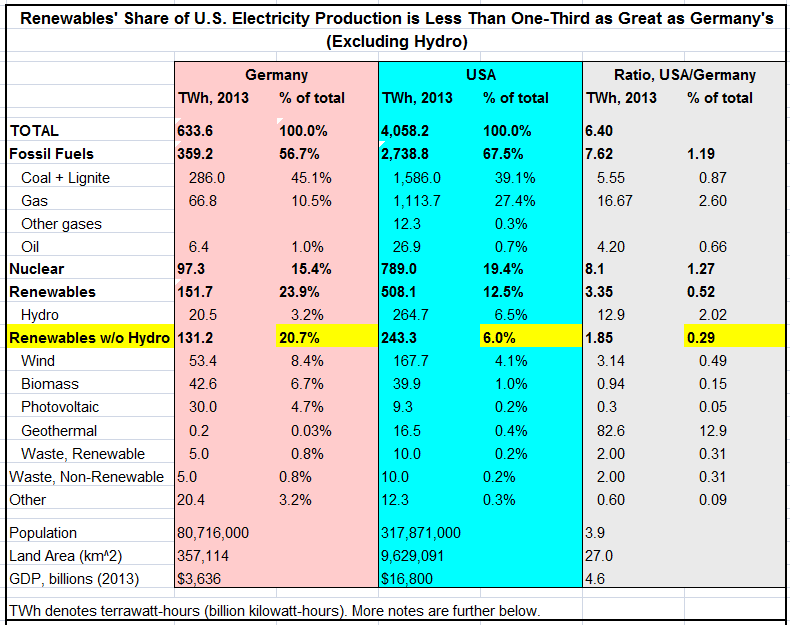Florida G.O.P. Bigs Are Flummoxed as Climate Change Hits Home (NYT)
On Climate, Republicans and Democrats Are From Different Continents
The G.O.P. Can’t Ignore Climate Change
U.S. Climate Has Already Changed, Study Finds, Citing Heat and Floods
Want to Do Something About Greenhouse Gas? Try A Carbon Tax
Rethinking the Climate Change Debate
How to Win a Carbon Tax Fight
Is The New York Times Missing The Decade’s Most Affirmative Climate-and-Energy Story?
Alone among the major economies, Germany is moving purposefully to phase out fossil fuels while also shuttering nuclear power. Germany’s energy makeover, or “energiewende,” appears to be thriving, as evidenced by the country’s humming economy, low unemployment, robust exports, stable or declining CO2 emissions, and rapid uptake of renewables. Yet the world’s most influential newspaper casts this ambitious program as an incipient failure, even as elsewhere it decries the climate stalemate in Washington.
 Here are ten packets of information worth bearing in mind as you sift through coverage in “the paper of record” of Germany’s transformative energy agenda.
Here are ten packets of information worth bearing in mind as you sift through coverage in “the paper of record” of Germany’s transformative energy agenda.
1. The German economy is the world’s fourth largest ― after the United States, China and Japan. Of the three dozen highest-population countries, Germany boasts the highest per capita GDP, save for the U.S.
2. Germany has embarked upon a concerted program to transform its energy system from fossil fuels to renewable sources ― wind power, electricity from sunlight, and biological-based fuels. This energy makeover — energiewende, in German — is not an overnight phenomenon but the accumulation of a dozen synergistic laws and policy directives instituted over several decades. The energiewende is now reaching critical mass, such that last year over 20% of German-produced electricity was generated from renewable sources, not even counting traditional hydro-electricity: wind, 8.4%; biomass, 6.7%; photovoltaics, 4.7%; municipal waste, 0.8% (an additional 3.2% was from water power) ― more than triple the comparable percentage for the U.S. (see table), and the highest share by far of any major economy. Perhaps most notably, Germany, with cloudier skies, a more northerly location, and 1/27th the land area, produces more than three times as much photovoltaic electricity as the United States. PV’s share in Germany’s electricity generation mix is 20 times as large as that in the U.S. (more…)
